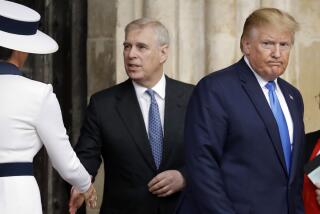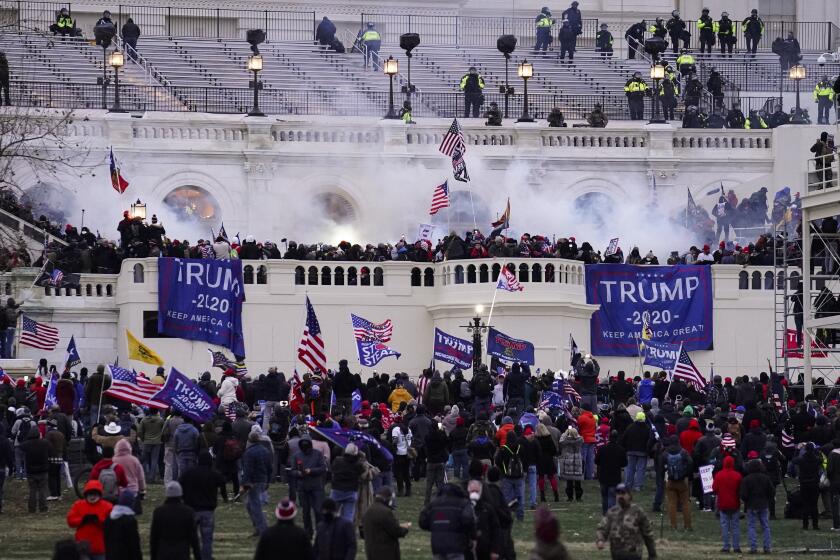Both sides take aim at witnesses’ testimony in Spector trial
About the only thing that the prosecution and defense at Phil Spector’s murder retrial could agree on Wednesday, the third day of closing arguments, was that some of the star witnesses were not telling the truth.
With jurors set to begin deliberating today whether the death of an actress six years ago was murder or suicide, the lawyers in the case spent a final full day trying to convince the panelists of their theories. Much of the time that meant attacking the credibility of a few pivotal witnesses.
An attorney for Spector zeroed in on the testimony of a Brazilian chauffeur who claims the legendary music producer emerged from his Alhambra mansion minutes after the fatal shooting holding a gun in his bloody hand and said, “I think I killed somebody.”
The attorney listed an array of reasons why jurors should discount the testimony of the driver, Adriano DeSouza. He said the driver was exhausted, hungry and shocked at the time of the shooting. He said DeSouza’s ability to understand Spector was hindered by a loudly burbling fountain nearby, his poor English and the intoxicated producer’s slurred speech.
Attorney Doron Weinberg said Spector probably told the driver to get help for Lana Clarkson, 40, who lay bleeding in the foyer behind him.
“How do you know [what he said] wasn’t, ‘Call somebody,’ ” Weinberg asked jurors.
He said that investigators “fastened” DeSouza into a version of the statement supporting their belief that Spector was guilty, and that he felt obligated to stick by it because his future immigration status was up in the air.
“I don’t mean intentionally lying. I mean trying to satisfy the authorities who he is depending on to stay in this country,” Weinberg said.
But in his summation, a prosecutor said DeSouza knew exactly what he heard.
“You don’t mistake ‘I think I killed somebody’ for ‘Hey, can you call someone?’ It’s ridiculous,’ ” Deputy Dist. Atty. Alan Jackson said
The prosecutor, who is to conclude his remarks this morning, said it was the defense expert witnesses who called the shooting consistent with suicide who couldn’t be trusted. He ridiculed two defense pathologists and a bloodstain expert as “pay to say” hired guns who betrayed their scientific principles to get big paychecks.
“How does homicide become a suicide? You write a big fat check,” Jackson said. He referred to the amount one witness received as a “horse-choking $181,000” and said the defense’s $419,000 bill for all its forensic experts was evidence that “if you can’t change the science, you buy the scientist.”
Spector’s defense claims Clarkson was depressed over career woes and financial setbacks and shot herself. Prosecutors say Spector had a history of threatening women with guns that culminated in Clarkson’s death.
In his summation, the defense lawyer read jurors despondent-sounding passages from e-mails the actress sent two months before her death. He said it was possible that after drinking and making out with Spector, Clarkson became upset and began asking herself, “Is this what my life has become?”
“In that moment given all of the things that were wrong in her life . . . can you say she would not have been capable of committing a self-destructive act?” Weinberg asked.
The prosecutor, however, described Clarkson as a “fighter” and “survivor” who was focused on the future. The last e-mail she wrote, he noted, was an RSVP to a party: “Can’t wait! XOXO Lana.”
A second-degree murder conviction would carry a minimum of 18 years in prison for Spector, 69. A lesser count, involuntary manslaughter, carries two to four years in prison. A 2007 trial ended in a hung jury.
--
More to Read
Sign up for Essential California
The most important California stories and recommendations in your inbox every morning.
You may occasionally receive promotional content from the Los Angeles Times.











